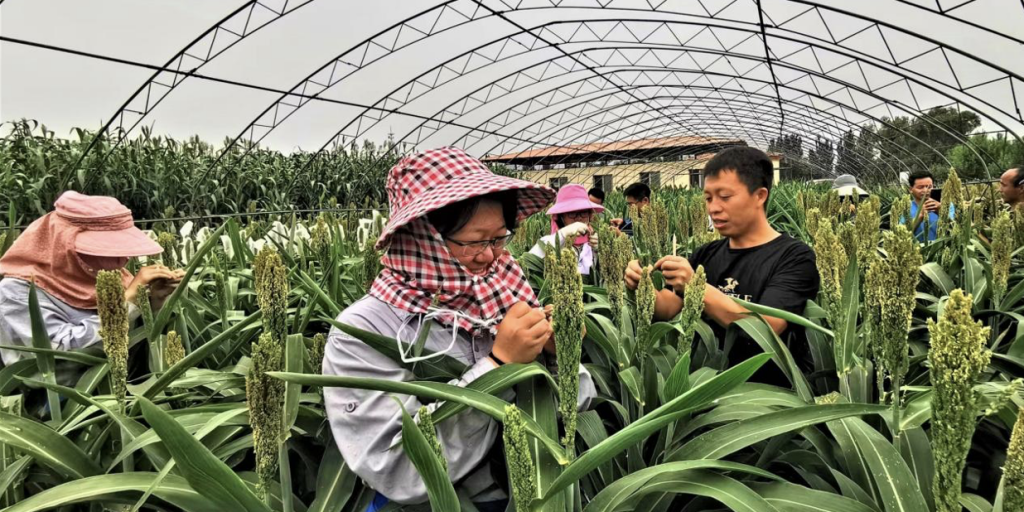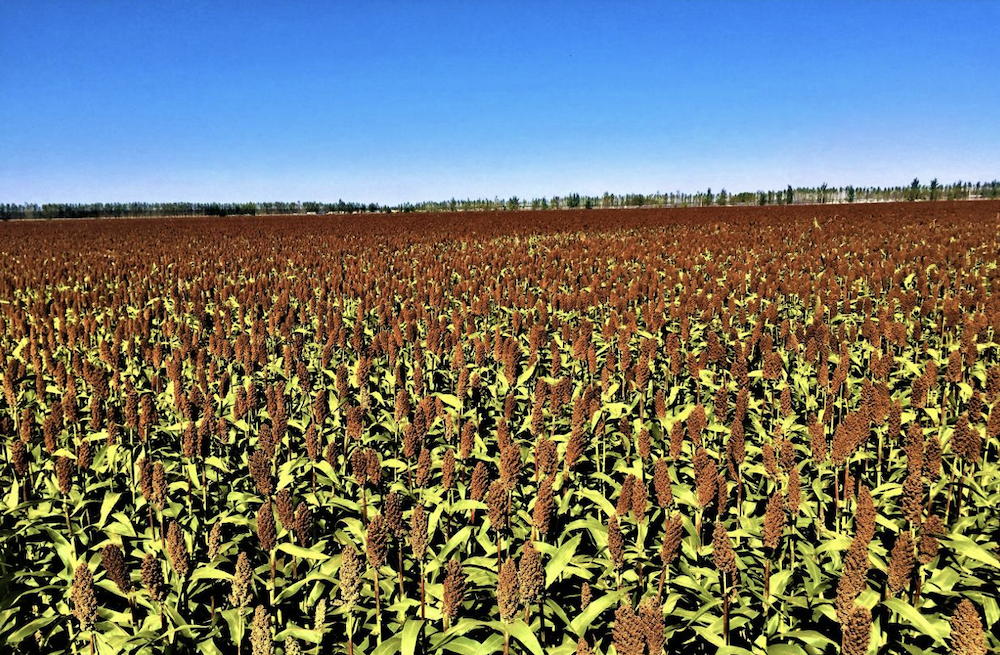As with other crops, exposure to salt stress negatively affects sorghum by reducing yield and production. Other studies have investigated both the genetic underpinings of salt responses in sorghum and the physiological and biochemical responses to such exposure. However, current technology allows for the identification of the transcriptome expression profile in the plant cells and the use of liquid chromatography/mass spectrometry (LC/MS) technology to investigate the sorghum plant’s metabolites and proteins, providing more information to connect the plant’s genotype and phenotype. Scientists from Liaoning Academy of Agricultural Sciences in Shenyang, China researched two species of sorghum: LRNK1 (salt-tolerant (ST)) and LR2381 (salt-sensitive (SS)). Both lines were treated with a 180 mM NaCl salt solution. As expected, the LRNK1 had significantly higher plant height, leaf area, and chlorophyll contents than the LR2381 line. Zhang et al. conducted a functional analysis of differentially expressed genes (DEGs) which revealed that the primary methods the sorghum plant uses to respond to salt stress are plant hormone signal transduction (GO:0015473), carbohydrate catabolic processes (GO:0016052), and photosynthesis (GO:0015979). Indeed the two lines had differences in their gene expression which resulted in different profiles of salicylic acid and betaine between LRNK1 and LR2381 revealed in the metabolomic data. These differences have important implications for the salt tolerance differences between the two lines. The authors conclude that the response of the LRNK1 sorghum line to mitigate the effects of salt stress is multi-faceted and includes energy reserve, the accumulation of salicylic acid and betaine and the improvement of the activity of salt stress-related pathways. The results of the study have potential implications for the improvement of sorghum production under stress through breeding practices.
Reference
Zhang F, Lu F, Wang Y, Zhang Z, Wang J, Zhang K, Wu H, Zou J, Duan Y, Ke F, Zhu K. Combined transcriptomic and physiological metabolomic analyses elucidate key biological pathways in the response of two sorghum genotypes to salinity stress. Front Plant Sci. 2022 Oct 13;13:880373. PMID: 36311110. DOI: 10.3389/fpls.2022.880373. Read more


Front left: Zhang Fei, Zhu Kai, Wang Yanqiu, Zou Jianqiu, Li Zhihua, Wang Jiaxu
Back left: Duan Youhou, Liu Zhiqiang, Lu Feng, Zhang Kuanye, Wu Han, Ke Fulai, ZhangZhipeng
